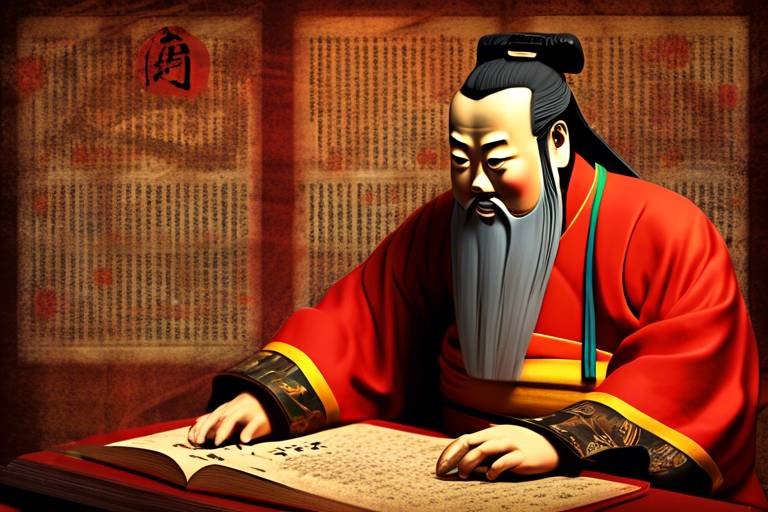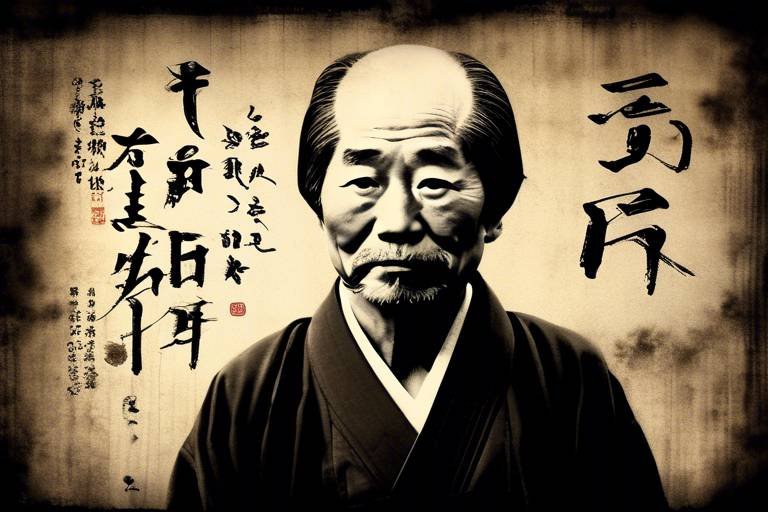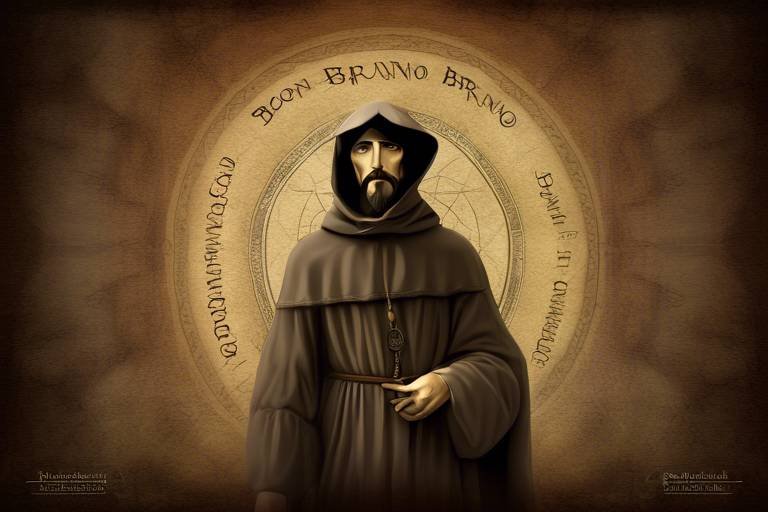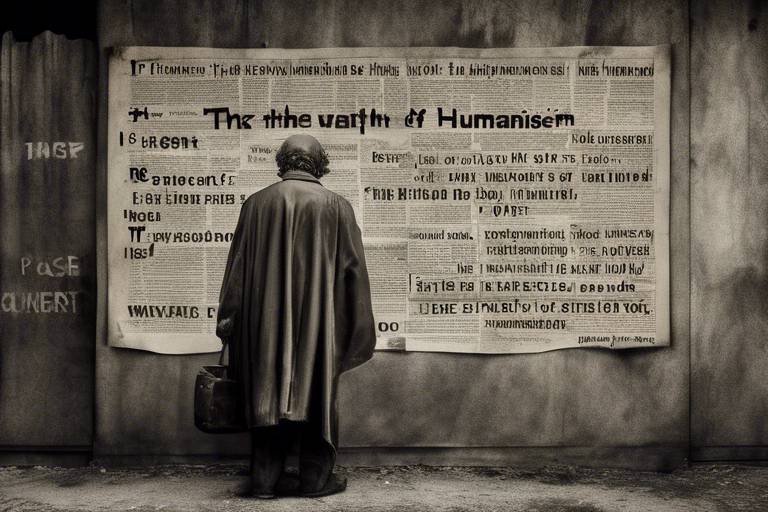An Exploration of Political Philosophy - Machiavelli to Marx
This article delves into the evolution of political thought from Machiavelli's pragmatic approach to Marx's revolutionary ideals, highlighting key philosophers and their contributions to the field. Political philosophy has always been a reflection of the human condition, grappling with the complexities of power, governance, and justice. As we journey through time, we encounter thinkers who have shaped our understanding of these concepts, from the cunning realism of Machiavelli to the radical critiques of Marx. Each philosopher presents a unique lens through which we can examine the structures that govern our societies, and their ideas continue to resonate in contemporary discussions about politics and ethics.
Machiavelli stands out as a pivotal figure in political philosophy, primarily due to his emphasis on realism and pragmatism. His work, particularly in The Prince, advocates for a clear-eyed assessment of power dynamics. Rather than adhering to moral ideals, Machiavelli argued that the ends often justify the means, especially in the tumultuous world of politics. This perspective has significantly influenced modern political theory, encouraging leaders to prioritize effectiveness over ethical considerations. In today's political landscape, where compromise and negotiation are commonplace, Machiavelli's insights remind us that sometimes, harsh decisions are necessary to maintain stability and order.
Moving forward in time, we encounter Thomas Hobbes, who introduced the groundbreaking concept of the social contract. His assertion that individuals consent to surrender certain freedoms in exchange for security laid the foundation for modern governance. Hobbes believed that in a state of nature, life would be "solitary, poor, nasty, brutish, and short." Thus, to escape this chaos, individuals must agree to form a society governed by a powerful authority. This idea has sparked extensive debates about the balance between liberty and authority, shaping the political landscape for centuries.
Hobbes' seminal work, Leviathan, presents a compelling argument for absolute sovereignty. He posits that only a powerful state can prevent societal chaos and maintain order. This notion of a strong, centralized authority has influenced various political systems, prompting discussions about the role of government in citizens' lives. In a world where political instability can lead to violence and disorder, Hobbes' ideas serve as a cautionary tale about the necessity of governance.
However, Hobbes' views have not gone unchallenged. Various philosophers have critiqued his approach, advocating for more democratic forms of governance. Critics argue that absolute power can lead to tyranny and oppression, undermining the very freedoms Hobbes sought to protect. This ongoing dialogue about the nature of authority and individual rights remains relevant, as societies grapple with the implications of government power in contemporary contexts.
In stark contrast to Hobbes, John Locke championed the ideals of liberalism, advocating for natural rights and government by consent. Locke's philosophy laid the groundwork for modern democratic thought, emphasizing that governments exist to protect the rights of individuals. His assertion that life, liberty, and property are fundamental rights has become a cornerstone of democratic ideology, influencing revolutionary movements across the globe.
Locke's natural rights theory emphasizes the role of government in safeguarding these rights. He argued that when a government fails to protect the rights of its citizens, the people have the right to revolt. This revolutionary spirit inspired many, and his ideas were instrumental in shaping the principles enshrined in the Declaration of Independence in the United States. The echoes of Locke's philosophy can still be heard in contemporary discussions about civil rights and liberties.
Locke's influence on the American Revolution cannot be overstated. His ideas provided the philosophical justification for independence, empowering colonists to challenge British authority. The principles of government by consent and the protection of individual rights became rallying cries for revolutionaries, ultimately leading to the establishment of a new nation founded on democratic ideals. This legacy continues to inspire movements for freedom and equality worldwide.
As we approach the modern era, we encounter Karl Marx, whose critique of capitalism has left an indelible mark on political thought. Marx argued that capitalism inherently leads to class struggle and inequality, advocating for a revolutionary approach to establish a classless society. His ideas challenge the status quo, urging individuals to recognize the systemic issues within capitalist societies.
Central to Marx's philosophy is the concept of historical materialism, which posits that material conditions and economic factors drive historical change. This framework provides a lens through which to analyze societal development and class relations, emphasizing the role of economic power in shaping human experiences. Marx's analysis of capitalism has sparked extensive debates about inequality and the potential for social change.
The legacy of Marxism is profound, inspiring various political movements and ideologies worldwide. From socialist experiments to communist regimes, Marx's ideas have prompted ongoing discussions about the nature of capitalism and the quest for equality. His critiques continue to resonate, challenging individuals to rethink the structures of power and the distribution of resources in society.
- What is political philosophy? Political philosophy is the study of fundamental questions about government, justice, rights, and the role of individuals within society.
- Who are some key figures in political philosophy? Key figures include Machiavelli, Hobbes, Locke, and Marx, each contributing unique perspectives on power and governance.
- How did Locke influence modern democracy? Locke's ideas about natural rights and government by consent laid the groundwork for democratic principles, influencing revolutions and constitutions worldwide.
- What is historical materialism? Historical materialism is a concept developed by Marx that argues material conditions and economic factors shape historical developments and class relations.

Machiavelli's Realism
When we dive into the realm of political philosophy, few names resonate as powerfully as Niccolò Machiavelli. Often considered the father of modern political science, Machiavelli's work, especially in his seminal text, The Prince, offers a starkly pragmatic approach to governance. He famously asserted that the ends often justify the means, a notion that has sparked both admiration and controversy. But what does this really mean? In essence, Machiavelli encourages leaders to prioritize effectiveness over ethics, suggesting that morality can sometimes be a hindrance to achieving political stability and power.
Machiavelli's realism is deeply rooted in the understanding of human nature. He posits that people are inherently self-interested and that leaders must navigate this reality. Unlike idealists who envision a world governed by noble virtues, Machiavelli paints a more cynical picture. He argues that a ruler must be shrewd, cunning, and willing to engage in deceit if necessary. This perspective has profound implications for modern politics, where the line between right and wrong can often appear blurred in the pursuit of power.
One of the most striking aspects of Machiavelli's thought is his emphasis on the importance of a strong state. He believed that a powerful ruler is essential to maintain order and prevent chaos. This idea resonates even today, as we witness various governments grappling with issues of authority and control. Machiavelli's insights remind us that the stability of a state often hinges on its leader's ability to make tough decisions, sometimes at the cost of popular approval.
Moreover, Machiavelli's influence extends beyond just political theory; it seeps into the very fabric of modern governance. His ideas have been embraced by leaders across the globe, from autocrats seeking to consolidate power to democratically elected officials navigating the complexities of political life. The pragmatic approach he champions encourages a certain flexibility in decision-making that can be both a strength and a vulnerability.
In summary, Machiavelli's realism is a cornerstone of political thought that challenges us to reconsider our perceptions of morality in governance. His belief that power dynamics often overshadow ethical considerations invites us to reflect on the nature of leadership and the responsibilities that come with it. As we continue to grapple with the complexities of political life, Machiavelli's insights remain as relevant as ever, urging us to recognize the intricate dance between ethics and efficacy in the pursuit of a stable society.

Hobbes and Social Contract Theory
Thomas Hobbes, a towering figure in political philosophy, introduced the groundbreaking concept of the social contract in his seminal work, Leviathan. Imagine a world without laws or authority—a chaotic landscape where every person is in a constant state of conflict, driven by their own desires and fears. Hobbes argued that such a scenario was the natural state of humanity, which he famously termed the "state of nature." In this state, life would be "solitary, poor, nasty, brutish, and short." To escape this grim reality, individuals would choose to surrender some of their freedoms in exchange for security and order provided by a sovereign authority.
The essence of Hobbes' social contract theory is that individuals consent, either explicitly or implicitly, to form a society governed by a powerful ruler or governing body. This ruler, often referred to as the Leviathan, is endowed with absolute power to enforce laws and maintain peace. The idea here is simple yet profound: to ensure safety and stability, people must relinquish certain liberties. In Hobbes' view, the benefits of living in a structured society far outweigh the costs of giving up some personal freedoms.
However, Hobbes' vision of governance has not gone unchallenged. Critics argue that his model promotes authoritarianism at the expense of individual rights. This brings us to an interesting point: how do we balance the need for security with the preservation of personal freedoms? While Hobbes believed in a strong, centralized authority, other philosophers like John Locke and Jean-Jacques Rousseau proposed alternative views that emphasized democracy and individual rights. They questioned whether absolute power could ever truly serve the common good without risking tyranny.
To better understand Hobbes' influence, let’s explore some key aspects of his social contract theory:
| Aspect | Description |
|---|---|
| State of Nature | A hypothetical scenario where no government or laws exist, leading to chaos and conflict. |
| Social Contract | An agreement among individuals to form a society and accept certain limitations on their freedoms for the sake of security. |
| Absolute Sovereignty | The belief that a powerful ruler is necessary to maintain order and prevent chaos. |
Despite the criticisms, Hobbes' social contract theory laid the groundwork for modern political thought. It sparked discussions about the nature of authority, the rights of individuals, and the responsibilities of governments. His ideas resonate today as we grapple with questions about state power, civil liberties, and the role of citizens in a democratic society. In a world where security concerns often clash with personal freedoms, Hobbes' insights remain relevant, challenging us to consider how much power we are willing to give up for the sake of safety.
As we move forward in our exploration of political philosophy, it’s essential to reflect on Hobbes' legacy. His work invites us to ask ourselves: what kind of society do we want to live in? One that prioritizes order and security, or one that champions freedom and individual rights? The answers to these questions continue to shape our political landscape today.

Leviathan's Impact
Thomas Hobbes' Leviathan is not just a book; it's a defining moment in the landscape of political philosophy. Published in 1651, it boldly argues for the necessity of a strong, centralized authority to prevent society from descending into chaos. Imagine a world where every individual acts solely on their self-interest, leading to a constant state of conflict—Hobbes believed that without a powerful sovereign to enforce peace, life would be "solitary, poor, nasty, brutish, and short." This stark portrayal of human nature lays the groundwork for his advocacy of absolute sovereignty.
What makes Leviathan so impactful is its revolutionary approach to the concept of governance. Hobbes introduced the idea of the social contract, suggesting that individuals collectively agree to surrender certain freedoms in exchange for security and order. This notion reshaped the understanding of political legitimacy, shifting the focus from divine right to the consent of the governed. It's a bit like trading a few pieces of your freedom for the peace of mind that comes with living in a stable society. This idea has echoed through the ages, influencing countless political theorists and systems of government.
Moreover, Hobbes' work sparked intense debate among his contemporaries and later philosophers. While some embraced his call for a powerful state, others criticized it, arguing that such absolute power could easily lead to tyranny. For instance, John Locke, who followed Hobbes, proposed a more balanced view that emphasized individual rights and the necessity of government accountability. This divergence in thought highlights the profound impact of Leviathan on the discourse surrounding governance, as it forced thinkers to grapple with the implications of Hobbes' stark vision.
To illustrate the lasting influence of Hobbes' ideas, consider the following table that outlines key themes in Leviathan and their implications:
| Theme | Implication |
|---|---|
| State of Nature | Humans are inherently self-interested, leading to conflict without a governing authority. |
| Social Contract | Individuals consent to surrender some freedoms for the sake of security and order. |
| Absolute Sovereignty | A strong central authority is necessary to maintain peace and prevent chaos. |
In conclusion, the impact of Leviathan extends far beyond its pages. It serves as a foundational text that continues to inform our understanding of power, governance, and human nature. Hobbes' arguments compel us to consider the delicate balance between liberty and security, a debate that remains relevant in today's political climate. As we navigate modern governance, the echoes of Hobbes' insights remind us of the complexities involved in maintaining order in a world full of competing interests.
- What is the main argument of Hobbes' Leviathan? Hobbes argues for a powerful sovereign to maintain peace and prevent chaos in society.
- How did Leviathan influence modern political thought? It introduced the social contract theory, emphasizing the importance of consent and governance.
- What critiques exist against Hobbes' ideas? Critics argue that absolute power can lead to tyranny and that individual rights must be safeguarded.

Leviathan,
This article delves into the evolution of political thought from Machiavelli's pragmatic approach to Marx's revolutionary ideals, highlighting key philosophers and their contributions to the field.
Machiavelli's political philosophy focuses on power dynamics and statecraft, emphasizing the importance of pragmatism over morality in governance, which has influenced modern political theory significantly.
Thomas Hobbes introduced the concept of the social contract, arguing that individuals consent to surrender some freedoms for security, shaping the foundation of modern political thought and governance.
Hobbes' seminal work, Leviathan, presents a compelling argument for absolute sovereignty, highlighting the necessity of a powerful state to prevent chaos and maintain order in society. In this work, Hobbes famously describes life in a state of nature as "solitary, poor, nasty, brutish, and short." This stark view of human nature leads him to advocate for a strong, centralized authority capable of enforcing laws and ensuring peace. The Leviathan, as Hobbes metaphorically describes the state, is a collective entity that must wield overwhelming power to keep individuals' baser instincts in check.
Hobbes argues that without a powerful sovereign, society would descend into anarchy, where the strong would prey on the weak. This idea has had profound implications on how we understand governance today. To illustrate the key components of Hobbes' argument, consider the following table:
| Key Concept | Description |
|---|---|
| State of Nature | A hypothetical condition where no government exists, leading to chaos and conflict. |
| Social Contract | An agreement among individuals to form a society and accept certain restrictions on their freedoms for the sake of security. |
| Absolute Sovereignty | The idea that a single ruler or governing body must hold ultimate power to maintain order. |
This framework laid the groundwork for later political theories and has been a point of contention among philosophers since its publication. Hobbes' insistence on a powerful state raises questions about the balance between security and freedom—a debate that continues to resonate in contemporary political discourse. How much power should the state have? Can individual freedoms coexist with a strong government? These are the questions that Hobbes' Leviathan forces us to confront.
Various philosophers have critiqued Hobbes' views, arguing for more democratic forms of governance and questioning the implications of absolute power on individual freedoms. Critics like John Locke and Jean-Jacques Rousseau have posited that Hobbes' bleak view of human nature is overly pessimistic and that people are capable of self-governance and mutual cooperation. They advocate instead for a system that emphasizes individual rights and democratic principles, challenging the notion that a powerful sovereign is the only solution to societal issues.
John Locke's philosophy advocates for natural rights and government by consent, laying the groundwork for liberal democracy and influencing revolutionary movements around the world.
Locke's assertion of life, liberty, and property as fundamental rights has become a cornerstone of democratic ideology, emphasizing the role of government in protecting these rights.
Locke's ideas significantly influenced the American Revolution, providing philosophical justification for independence and shaping the principles enshrined in the Declaration of Independence.
Karl Marx challenged the capitalist system, arguing that it leads to class struggle and inequality, and proposed a revolutionary approach to establish a classless society.
Marx's concept of historical materialism posits that material conditions and economic factors drive historical change, offering a framework for analyzing societal development and class relations.
Marx's ideas have inspired various political movements and ideologies, leading to the establishment of socialist and communist regimes, as well as ongoing debates about capitalism and inequality.
- What is the main idea of Hobbes' Leviathan?
Hobbes' Leviathan argues for the necessity of an absolute sovereign to maintain order and prevent chaos in society. - How did Locke influence modern democracy?
Locke's theories on natural rights and government by consent laid the foundation for liberal democracy. - What is Marx's view on capitalism?
Marx critiques capitalism for creating class struggle and inequality, advocating for a classless society.

presents a compelling argument for absolute sovereignty, highlighting the necessity of a powerful state to prevent chaos and maintain order in society.
Machiavelli's political philosophy focuses on power dynamics and statecraft, emphasizing the importance of pragmatism over morality in governance, which has influenced modern political theory significantly.
Thomas Hobbes introduced the concept of the social contract, arguing that individuals consent to surrender some freedoms for security, shaping the foundation of modern political thought and governance.
Hobbes' seminal work, Leviathan, presents a compelling argument for absolute sovereignty, highlighting the necessity of a powerful state to prevent chaos and maintain order in society.
In a world where the human condition is often described as "nasty, brutish, and short," Hobbes believed that without a strong governing body, society would descend into anarchy. He argued that a centralized authority is crucial for establishing peace and stability. Imagine a ship without a captain; it would drift aimlessly, susceptible to storms and chaos. Similarly, Hobbes posited that a sovereign power is essential to steer the ship of state through turbulent waters.
Hobbes' vision of a strong state is not just about control but also about the protection of citizens. He contended that individuals would willingly give up certain freedoms in exchange for security and order. This trade-off is fundamental to his social contract theory, where the populace agrees to abide by the laws set forth by the sovereign in return for protection from internal and external threats.
Moreover, Hobbes illustrated his ideas with a vivid metaphor: the "Leviathan" itself, a formidable sea creature representing the collective power of the state. This imagery serves to reinforce the notion that the state must be powerful enough to enforce laws and maintain societal order, akin to a giant that can crush any dissent or chaos that threatens the peace.
Various philosophers have critiqued Hobbes' views, arguing for more democratic forms of governance and questioning the implications of absolute power on individual freedoms.
John Locke's philosophy advocates for natural rights and government by consent, laying the groundwork for liberal democracy and influencing revolutionary movements around the world.
Locke's assertion of life, liberty, and property as fundamental rights has become a cornerstone of democratic ideology, emphasizing the role of government in protecting these rights.
Locke's ideas significantly influenced the American Revolution, providing philosophical justification for independence and shaping the principles enshrined in the Declaration of Independence.
Karl Marx challenged the capitalist system, arguing that it leads to class struggle and inequality, and proposed a revolutionary approach to establish a classless society.
Marx's concept of historical materialism posits that material conditions and economic factors drive historical change, offering a framework for analyzing societal development and class relations.
Marx's ideas have inspired various political movements and ideologies, leading to the establishment of socialist and communist regimes, as well as ongoing debates about capitalism and inequality.
- What is the main idea of Hobbes' Leviathan? Hobbes' Leviathan argues for the necessity of a powerful sovereign to maintain order and prevent chaos in society.
- How did Locke influence modern democracy? Locke's advocacy for natural rights and government by consent laid the groundwork for liberal democratic ideals.
- What is historical materialism? Historical materialism is Marx's theory that material conditions primarily drive historical change and societal development.

Critiques of Hobbes
Thomas Hobbes' political philosophy, as articulated in his landmark work Leviathan, has sparked considerable debate among scholars and political theorists. While Hobbes presents a compelling argument for the necessity of a powerful sovereign to maintain order and prevent chaos, many critics argue that his views on absolute power are overly pessimistic and can lead to authoritarianism. Critics assert that Hobbes’ vision of human nature as inherently self-interested and brutish overlooks the capacity for cooperation and altruism among individuals. They contend that his emphasis on security and fear as the primary motivators for social contract formation diminishes the importance of moral considerations in governance.
Furthermore, one of the most significant critiques of Hobbes revolves around his dismissal of individual rights in favor of state power. Opponents argue that Hobbes' model prioritizes the state above the individual, which can lead to the justification of oppressive regimes. For example, in a Hobbesian state, the sovereign's authority could potentially justify actions that violate personal freedoms, as long as they are framed as necessary for maintaining order. This raises an essential question: at what point does the pursuit of security compromise the very freedoms that justify the social contract?
In response to Hobbes, philosophers such as John Locke and Jean-Jacques Rousseau introduced alternative frameworks that emphasize the importance of individual rights and democratic governance. Locke, in particular, argued that the social contract is based on the protection of natural rights, suggesting that individuals have a right to revolt against a government that fails to uphold these rights. This perspective highlights a fundamental divergence from Hobbes' view, where the sovereign's power is seen as absolute and unquestionable.
To summarize the critiques of Hobbes, we can consider the following key points:
- Overly Pessimistic View of Human Nature: Critics argue that Hobbes’ portrayal of individuals as solely self-interested fails to account for human capacity for cooperation.
- Justification of Authoritarianism: His advocacy for absolute sovereignty can lead to the justification of oppressive regimes that violate individual rights.
- Neglect of Moral Considerations: The focus on security over morality raises concerns about the ethical implications of governance.
- Alternative Views: Philosophers like Locke and Rousseau offer frameworks that prioritize individual rights and democratic processes.
Ultimately, while Hobbes' contributions to political philosophy cannot be understated, the critiques surrounding his ideas serve as a reminder of the delicate balance between authority and individual freedoms. These discussions continue to resonate in contemporary debates about governance, human rights, and the role of the state in society. As we navigate the complexities of political thought, it is crucial to engage with these critiques, ensuring that we strive for a political framework that recognizes both the need for order and the importance of individual liberty.
Q: What are the main critiques of Hobbes' political philosophy?
A: The main critiques include his overly pessimistic view of human nature, the potential justification of authoritarianism, neglect of moral considerations, and the promotion of alternative views that prioritize individual rights.
Q: How do Locke's ideas differ from Hobbes'?
A: Locke emphasizes natural rights and the government's role in protecting those rights, while Hobbes advocates for absolute sovereignty to maintain order, often at the expense of individual freedoms.
Q: Why is Hobbes' work still relevant today?
A: Hobbes' exploration of the social contract and the necessity of government in maintaining order is foundational to modern political theory, prompting ongoing discussions about the balance between authority and personal liberties.

Locke's Liberalism
John Locke, often heralded as the father of liberalism, brought a refreshing perspective to political philosophy in the 17th century. His ideas were revolutionary, emphasizing the importance of natural rights and the concept of governance by consent. Unlike his predecessors, Locke believed that individuals possess inherent rights simply by being human. These rights include life, liberty, and property, which he argued should be protected by the government. This focus on individual rights has become a cornerstone of modern democratic thought and has influenced countless political movements across the globe.
Locke's philosophy was not just theoretical; it was deeply practical and aimed at establishing a framework for a just society. He posited that the legitimacy of any government hinges on its ability to protect the rights of its citizens. If a government fails in this duty, Locke argued, the people have not only the right but the duty to overthrow it. This idea was radical at the time and laid the groundwork for future democratic revolutions, most notably the American Revolution. His thoughts on governance can be summarized in a few key principles:
- Natural Rights: The belief that all individuals are entitled to certain fundamental rights.
- Consent of the Governed: The idea that a government's power is derived from the consent of the people.
- Right to Revolution: The notion that citizens can revolt against a government that violates their rights.
Locke's influence extends beyond mere political theory; it has shaped the very fabric of modern democratic societies. His ideas were instrumental in the drafting of the Declaration of Independence, where the principles of life, liberty, and the pursuit of happiness echo his philosophy. In fact, many of the founding fathers of the United States drew heavily from Locke's writings, using them as a philosophical foundation for their quest for independence from British rule.
Moreover, Locke's thoughts on property were groundbreaking. He argued that property rights are a natural extension of individual rights, stating that individuals have the right to acquire and own property as a result of their labor. This idea not only justified the accumulation of wealth but also promoted the idea of economic freedom, which is a fundamental aspect of liberal democracies today. Locke's vision of a society where individuals could pursue their interests freely, while the government acted as a protector of their rights, continues to resonate in contemporary political discourse.
In summary, Locke's liberalism represents a significant shift in political thought, moving away from authoritarianism and towards a model that prioritizes individual freedoms and democratic governance. His legacy is evident in the principles that underpin many modern governments, emphasizing the importance of protecting individual rights and ensuring that the power of the state remains accountable to the people.
- What are Locke's main contributions to political philosophy?
Locke's main contributions include the concepts of natural rights, government by consent, and the right to revolution, which have shaped modern democratic thought. - How did Locke influence the American Revolution?
Locke's ideas provided the philosophical justification for independence, emphasizing individual rights and the need for government accountability. - What is the significance of property rights in Locke's philosophy?
Locke argued that property rights are a natural extension of individual rights, promoting economic freedom and individual autonomy.

Natural Rights Theory
At the heart of John Locke's philosophy lies the concept of natural rights, a revolutionary idea that has shaped the very fabric of modern democratic thought. Locke posited that every individual is born with certain inalienable rights that are not granted by any authority but are inherent to human existence. These rights include life, liberty, and property. Locke argued that the primary role of government is to protect these rights, and if a government fails to do so, the people have the right to revolt. This notion of government by consent was a radical departure from the prevailing views of his time, which often favored absolute rule.
Locke's natural rights theory suggests that individuals possess rights simply by virtue of being human. This idea can be likened to the foundation of a house: without a solid base, the structure cannot stand. In this analogy, the natural rights serve as that foundational base, providing stability and support for the entire edifice of society. Locke believed that when individuals enter into a social contract, they agree to form a government that will safeguard their natural rights. However, this contract is contingent upon the government's respect for these rights; if it fails, the contract is void, and the people are justified in seeking change.
To understand the implications of Locke's theory, consider the following key points:
- Inherent Rights: Natural rights are universal and apply to all individuals, regardless of their social or economic status.
- Social Contract: The legitimacy of government is derived from the consent of the governed, who agree to form a society that protects their rights.
- Right to Revolt: If a government fails to uphold its end of the social contract, citizens have the moral authority to resist and seek new governance.
Locke's ideas were not just theoretical musings; they had profound real-world implications. His philosophy provided the intellectual backbone for the American Revolution, inspiring leaders to challenge British authority and advocate for a government that truly represented the will of the people. The Declaration of Independence echoes Locke's sentiments, famously asserting that all men are created equal and endowed with certain unalienable rights.
In summary, Locke's natural rights theory is more than just a philosophical framework; it is a call to action. It emphasizes the importance of individual rights and the responsibility of government to uphold them. As we navigate the complexities of modern governance, Locke's insights remain remarkably relevant, reminding us that the fight for liberty and justice is ongoing and that the principles of natural rights are essential for a thriving society.

Influence on the American Revolution
John Locke's political philosophy had a profound impact on the American Revolution, providing the intellectual framework that fueled the desire for independence from British rule. His ideas about natural rights—specifically, the rights to life, liberty, and property—resonated deeply with the colonists who felt that their rights were being systematically violated. Locke argued that governments are established to protect these rights and that when they fail to do so, the people have the right to overthrow them. This notion was revolutionary in itself, as it challenged the traditional view of monarchy and divine right.
The Declaration of Independence, drafted in 1776, is a testament to Locke's influence. Thomas Jefferson, the principal author, famously echoed Locke's sentiments when he wrote that individuals are endowed with certain unalienable rights. The phrase "life, liberty, and the pursuit of happiness" can be seen as a direct reflection of Locke's principles, demonstrating how his ideas were woven into the fabric of American identity. The colonists' struggle was not merely against taxation without representation; it was a fight for their inherent rights as individuals, rights that Locke asserted were not granted by any government but were instead part of human nature.
Moreover, Locke's belief in the social contract laid the groundwork for the new American government. He posited that individuals consented to form governments in exchange for the protection of their rights. This concept became a cornerstone of American political thought, influencing the formation of a government that was accountable to its citizens. The idea that power should derive from the consent of the governed was revolutionary and is still a fundamental principle in democratic societies today.
The debates and discussions among the Founding Fathers were heavily influenced by Locke's writings. Figures such as James Madison and Alexander Hamilton drew on his ideas to articulate the need for a balanced government that would prevent tyranny while protecting individual freedoms. They understood that a government built on Locke's principles would not only address the grievances of the American colonists but also establish a model for governance that prioritized liberty and justice.
In summary, Locke's influence on the American Revolution was pivotal. His ideas inspired the colonists to seek independence and shaped the core values of the new nation. The philosophical foundation laid by Locke continues to resonate in contemporary discussions about democracy, rights, and governance. As we reflect on the American Revolution, it is essential to recognize the enduring legacy of John Locke and how his thoughts on liberty and governance continue to inspire movements for justice and equality around the world.
- What are John Locke's main contributions to political philosophy?
Locke's main contributions include the concepts of natural rights, the social contract, and the idea that government should be based on the consent of the governed.
- How did Locke influence the Declaration of Independence?
Locke's ideas about unalienable rights and the social contract directly influenced Thomas Jefferson's writing in the Declaration, particularly in the assertion of life, liberty, and the pursuit of happiness.
- What is the social contract theory?
The social contract theory posits that individuals consent to form governments and surrender some freedoms in exchange for protection of their remaining rights.
- Why is Locke considered a key figure in the Enlightenment?
Locke is considered a key figure in the Enlightenment because his ideas about reason, individual rights, and government accountability laid the groundwork for modern democratic thought.
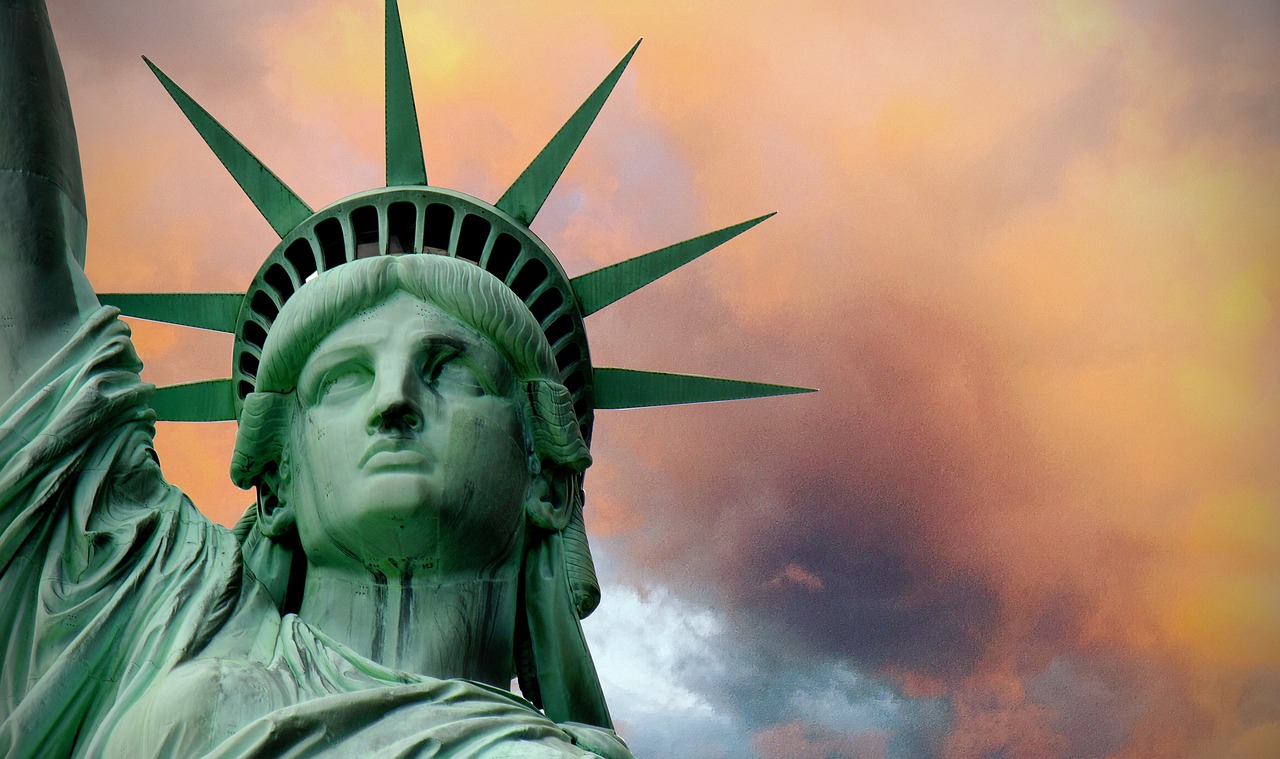
Marx's Critique of Capitalism
Karl Marx, a name synonymous with revolutionary thought, took a bold stand against the capitalist system, illuminating its inherent flaws and the inequalities it perpetuates. At the core of Marx's critique is the notion that capitalism is not just an economic system but a complex web of social relations that fosters class struggle. He argued that capitalism leads to a **division of society into classes**, primarily the bourgeoisie (the capital owners) and the proletariat (the working class). This division is not merely economic; it's a fundamental aspect of how power and resources are distributed in society.
Marx posited that the capitalist system exploits workers, who sell their labor for wages, yet do not receive the full value of what they produce. This exploitation results in a surplus value that enriches the bourgeoisie while keeping the proletariat in a state of perpetual struggle. To illustrate this, consider the following table that summarizes Marx's view of class relations under capitalism:
| Class | Role in Capitalism | Relationship to Production |
|---|---|---|
| Bourgeoisie | Owners of production | Control resources and profit from labor |
| Proletariat | Workers | Sell labor for wages, often below value produced |
This framework of class struggle is central to Marx's analysis. He believed that the **conflict between the bourgeoisie and proletariat** would inevitably lead to revolutionary change. Marx argued that as the proletariat becomes increasingly aware of their exploitation, they would unite to overthrow the capitalist system, paving the way for a classless society. This revolutionary ideology was not merely a theoretical exercise for Marx; it was a call to action, urging the working class to recognize their power and potential for change.
Moreover, Marx's critique extends to the **alienation** experienced by workers in a capitalist system. He argued that workers become estranged from their labor, the products they create, and ultimately from their own humanity. This alienation is a byproduct of a system that prioritizes profit over people, reducing individuals to mere cogs in a machine. The emotional and psychological toll of this alienation is profound, leading to a sense of disconnection not only from work but from society as a whole.
While Marx's ideas sparked revolutions and inspired political movements worldwide, they also ignited debates about the viability of his solutions. Critics argue that Marx's vision of a classless society is utopian and that attempts to implement his ideas have often led to authoritarian regimes rather than the liberation he envisioned. Nevertheless, Marx's critique of capitalism remains relevant today, particularly as we witness growing economic inequality and the concentration of wealth in the hands of a few. His insights challenge us to question the sustainability of our current economic systems and to consider the implications of unchecked capitalism.
- What is Marx's main critique of capitalism? Marx's main critique revolves around the exploitation of the working class and the inherent inequalities created by the capitalist system.
- How does Marx define class struggle? Class struggle is defined by the conflict between different classes in society, primarily between the bourgeoisie and the proletariat, which Marx believed would lead to revolutionary change.
- What is the significance of alienation in Marx's theory? Alienation refers to the disconnection workers feel from their labor and society, stemming from a system that prioritizes profit over human needs.
- Have Marx's ideas been successfully implemented? While Marx's ideas have inspired many political movements, attempts to implement them have often led to authoritarian regimes, sparking ongoing debates about their viability.

Historical Materialism
Karl Marx's concept of serves as a cornerstone for understanding his critique of society and the development of human civilization. At its core, historical materialism posits that the material conditions of a society—primarily its economic structure—are the driving forces behind historical development and social change. This perspective shifts the focus from abstract ideas or moral values to the tangible realities of production and labor. In simpler terms, it suggests that "what you do" shapes "who you are," emphasizing that economic factors largely determine the course of history.
Marx argued that human societies progress through a series of stages, each defined by the dominant mode of production. These stages can be summarized as follows:
| Mode of Production | Characteristics |
|---|---|
| Primitive Communism | Small, communal societies with shared resources. |
| Feudalism | Land ownership by nobles and serfs working the land. |
| Capitalism | Private ownership of production and wage labor. |
| Socialism | Collective ownership of production with an emphasis on equality. |
| Communism | A classless society with communal ownership of all resources. |
This progression is not merely a linear evolution; rather, it is punctuated by class struggles, where the inherent conflicts between the ruling class and the oppressed class propel society toward change. Marx famously stated, "The history of all hitherto existing society is the history of class struggles." This encapsulates his belief that each mode of production creates its own class dynamics, which ultimately leads to its own downfall and the emergence of a new system. For instance, the contradictions within capitalism—such as the tension between the bourgeoisie (capital owners) and the proletariat (workers)—set the stage for revolutionary change.
The implications of historical materialism extend beyond mere academic discourse; they have profound real-world consequences. By framing social issues through the lens of economic conditions, Marx provides a robust framework for analyzing contemporary issues like inequality, exploitation, and class conflict. It encourages a critical examination of how economic systems shape social relations and individual identities, urging us to question the status quo and consider the possibilities for a more equitable society.
In modern discourse, historical materialism remains relevant as it informs various political ideologies and movements. From socialist parties advocating for workers' rights to grassroots organizations fighting against economic injustice, the principles of historical materialism resonate in ongoing struggles for equality and social justice. As we navigate the complexities of the 21st century, understanding Marx's insights can provide a valuable perspective on the intersection of economics, politics, and society.
In conclusion, historical materialism is not just a theoretical construct; it is a lens through which we can analyze the past, understand the present, and envision a more just future. By recognizing the role of material conditions in shaping human experiences, we can better comprehend the forces that drive societal change and work towards a more equitable world.
- What is historical materialism? Historical materialism is a Marxist framework that emphasizes the role of material conditions and economic factors in shaping historical development and societal change.
- How does historical materialism differ from other philosophical approaches? Unlike idealist philosophies that prioritize ideas and morality, historical materialism focuses on the tangible realities of production and labor as the primary drivers of history.
- What are the stages of societal development according to Marx? Marx identified several stages: Primitive Communism, Feudalism, Capitalism, Socialism, and Communism, each characterized by different modes of production and class relations.
- Why is historical materialism important today? It provides a framework for analyzing contemporary social issues like inequality and class struggle, encouraging critical examination of economic systems and their impact on society.

Legacy of Marxism
The is a multifaceted tapestry that weaves through the fabric of modern political thought and social movements. At its core, Marxism critiques the capitalist system, arguing that it inherently fosters inequality and class struggle. This critique has not only inspired revolutionary movements but has also sparked ongoing debates about the nature of capitalism and its impact on society. Marx's ideas have been a beacon for those dissatisfied with the status quo, illuminating paths toward alternative systems of governance and economic organization.
One of the most significant contributions of Marxism is its emphasis on the class struggle. Marx posited that history is driven by the conflicts between different social classes, primarily the bourgeoisie (the owners of the means of production) and the proletariat (the working class). This perspective has influenced various political ideologies, leading to the development of socialist and communist movements around the globe. For instance, the Russian Revolution of 1917 and the establishment of the Soviet Union were direct manifestations of Marxist theory in action, as revolutionaries sought to dismantle the capitalist structure and build a classless society.
Moreover, Marx's concept of historical materialism has provided a framework for understanding societal development. By asserting that material conditions and economic factors drive historical change, Marxism encourages a critical examination of how economic systems shape social relations and power dynamics. This approach has been instrumental in various fields, including sociology, political science, and economics, prompting scholars to analyze the interplay between economic forces and societal structures.
However, the legacy of Marxism is not without its controversies. While Marx's ideas inspired many to seek justice and equality, the practical applications of Marxism in the 20th century led to mixed results. The establishment of communist regimes often resulted in authoritarian governance, raising questions about the feasibility of Marx's vision in practice. This dichotomy has led to a rich discourse on the merits and pitfalls of Marxist ideology, with thinkers like Antonio Gramsci and Herbert Marcuse offering nuanced interpretations that seek to reconcile Marxist theory with democratic principles.
In contemporary society, Marxism continues to resonate, especially in discussions surrounding economic inequality and the power of corporations. Movements such as Occupy Wall Street and various labor rights campaigns echo Marxist themes, advocating for systemic change to address the disparities exacerbated by capitalism. Furthermore, the rise of digital economies and gig work has prompted a reevaluation of class structures, with many looking to Marxist theory to understand the implications of these shifts.
In summary, the legacy of Marxism is a complex interplay of ideas that challenge existing power structures and advocate for social justice. Whether viewed as a revolutionary force or a cautionary tale, its influence on political thought and action remains undeniable. As we navigate the 21st century, the questions raised by Marxism about inequality, class, and the role of the state continue to provoke thought and inspire action across the globe.
- What is the main idea of Marxism? Marxism primarily critiques capitalism, arguing that it leads to class struggle and inequality, advocating for a classless society.
- How did Marxism influence political movements? Marxism inspired numerous revolutionary movements, most notably the Russian Revolution, and continues to influence labor rights and social justice movements today.
- What is historical materialism? Historical materialism is a Marxist framework that posits that material conditions and economic factors drive historical change and societal development.
- Are there modern applications of Marxism? Yes, contemporary discussions about economic inequality, corporate power, and social justice often draw on Marxist principles to advocate for systemic change.
Frequently Asked Questions
- What is Machiavelli's main contribution to political philosophy?
Machiavelli is best known for his pragmatic approach to power and statecraft. He emphasized the importance of realism over idealism, arguing that the ends often justify the means in governance. His work has profoundly influenced modern political theory, particularly in the realm of political strategy and leadership.
- How did Hobbes' concept of the social contract shape modern governance?
Hobbes introduced the idea that individuals consent to surrender certain freedoms to a sovereign authority in exchange for security and order. This concept laid the groundwork for modern political thought, influencing ideas about governance, authority, and the role of the state in protecting its citizens.
- What are the key critiques of Hobbes' philosophy?
Critics of Hobbes argue that his view of absolute sovereignty can lead to tyranny and violate individual freedoms. Philosophers like Locke challenged Hobbes by advocating for a more democratic framework, emphasizing the importance of consent and the protection of natural rights.
- What is Locke's theory of natural rights?
Locke's natural rights theory posits that every individual has inherent rights to life, liberty, and property. He argued that the government's primary role is to protect these rights, which has become a foundational principle of liberal democracy and influenced revolutionary movements, including the American Revolution.
- How did Marx critique capitalism?
Marx critiqued capitalism by arguing that it inherently leads to class struggle and economic inequality. He believed that the capitalist system exploits workers and creates a divide between the bourgeoisie and the proletariat, advocating for a revolutionary approach to establish a classless society.
- What is historical materialism?
Historical materialism is Marx's framework for understanding societal development, positing that material conditions and economic factors drive historical change. This perspective highlights the role of class relations and economic structures in shaping human history and social dynamics.
- What is the legacy of Marxism in modern politics?
Marx's ideas have inspired various political movements and ideologies, leading to the establishment of socialist and communist regimes. His critique of capitalism continues to spark debates about economic inequality and the role of government in addressing social justice issues.







